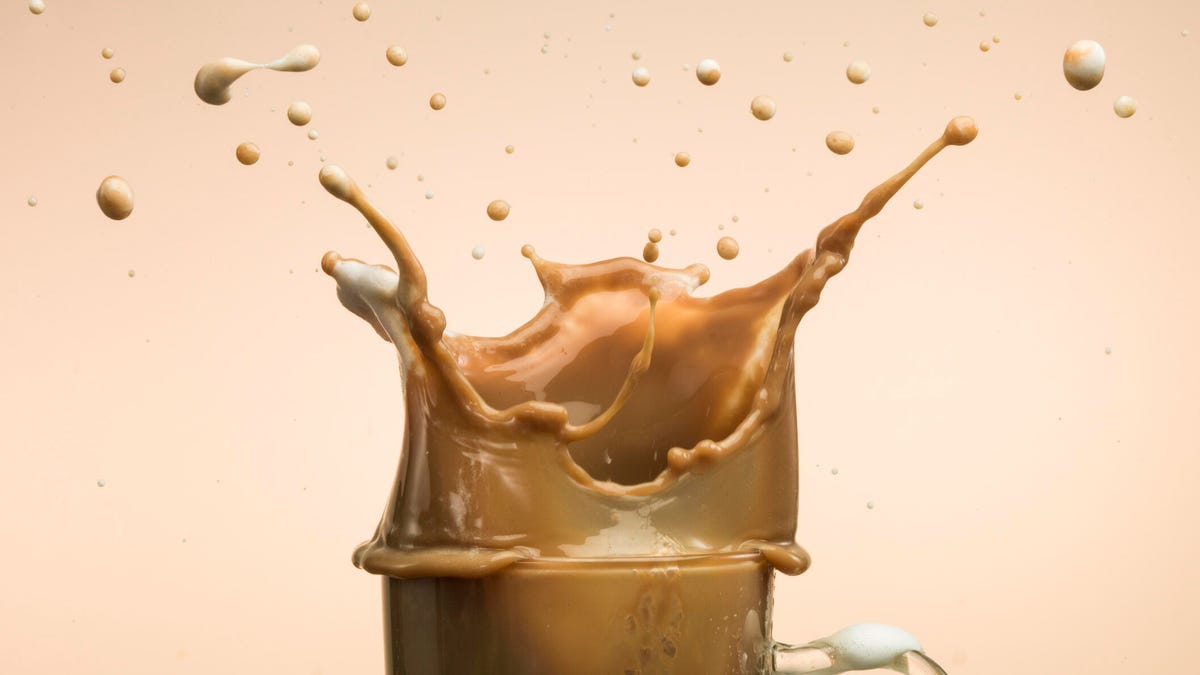Is coffee a good preworkout?
Here's how to use nature's preworkout to intensify your sweat session.

Allow coffee to amp you up for exercise.
Preworkout supplements promise to amp you up for the gym and improve your exercise performance. Most preworkout supplements, however, are unnecessarily expensive and have shady ingredient labels with "proprietary blends" that include who knows what.
Instead of spending money on an expensive preworkout supplement that may or may not have questionable ingredients, you can turn to something you probably already have in your pantry: coffee.
That's right -- caffeine is the main ingredient in most preworkout supplements, and you don't need neon-colored powders to consume it. A strong cup of coffee can do the trick just fine.
Read more: The dangers of loaded tea: How much caffeine is too much?
Why you should drink coffee before your workout
If you need an extra edge to increase motivation for your workout but feel wary of preworkout supplements, coffee can help. Caffeine has long been studied for its physiological effects, many of which positively influence exercise performance.
Coffee wakes you up: Caffeinated coffee increases activity in your brain and nervous system. It makes you feel more awake and alert, which can help you feel more energized for your workout. Most preworkout supplements contain caffeine, and coffee is a suitable and natural substitute.
Coffee keeps you focused: The stimulating effects of coffee can also keep you focused throughout your workout, which is helpful for pushing through early morning grogginess or busting through an afternoon dip in energy. A cup of preworkout coffee may help you concentrate on your reps and sets. Some research even suggests coffee can improve exercise endurance by making exercise seem more tolerable.
Coffee enhances athletic performance: Tons of studies show caffeine to improve athletic performance, especially for endurance exercise and high-intensity workouts. Just keep in mind that the doses used in clinical trials are often much higher than what an average person gets out of a normal brewed cup of coffee. Most studies look at doses of 200 to 400 milligrams, but some use doses of up to 600 milligrams. An average 8-ounce cup of brewed coffee has about 100 milligrams of caffeine.
Coffee might even reduce soreness: Coffee isn't a magical antidote to sore muscles, but research suggests coffee might have a positive effect on in-exercise soreness as well as delayed-onset muscle soreness, or DOMS. It's not clear whether the effect is physical or mental, but it's probably a combination of both: One study found coffee consumption to reduce perceived exertion and muscle pain during a workout.
Read more: When to stop drinking alcohol, water or caffeine before bed for better sleep
Reasons to avoid coffee as a preworkout
For some people, coffee isn't a good preworkout.
Many people experience unpleasant side effects after drinking coffee. Because of the caffeine content, coffee can increase your heart rate and blood pressure. Some people find the mental stimulation overwhelming too. Here are a few reasons some people avoid coffee as a preworkout.
It can give you the shakes: Coffee may make you feel jittery and shaky, especially if you're not used to the effects of caffeine or if you drink more than usual. Feeling shaky during your workout may make you feel weaker and, in worst-case scenarios, could even cause you to drop weights and injure yourself or others. Keep this in mind if you tend to get jittery after drinking coffee.
It might make you anxious: In addition to physical jitters, coffee is known to make people anxious. This likely has something to do with the increase in heart rate. If you already struggle with anxiety, coffee (or any caffeinated beverage) may not be the best choice for your preworkout.
It messes with your digestion: Coffee poop. It's a thing. Coffee is thought to stimulate peristalsis, the series of contractions your digestive tract makes to move things along. Exercise also stimulates the digestive tract, so the combo may lead you to beeline to the bathroom.
Read more: 5 ways to boost your energy level without caffeine
How to use coffee as a preworkout supplement
To get the best results from a preworkout cup of coffee, you should drink it 30 to 60 minutes before your workout. It takes about that long for the peak effects of caffeine to set in, and if you're in this to avoid hitting a wall during your workout, you want the biggest impact to hit as you get started. If you tend to slump halfway through your workout, try drinking coffee 10 minutes before, so the peak effects set in about 20 to 40 minutes into your workout.
In the event you're trying to quit drinking coffee, here's how.

